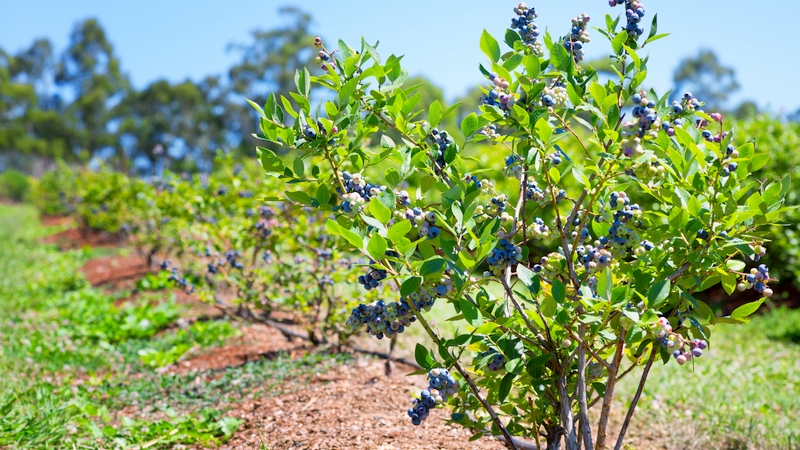Managed Varieties: The Future

The most pressing questions concerning managed varieties are not about where the apple industry is right now, but what is likely to happen going forward. What will be the long-term effect of managed varieties on the growers who are “members of the club” and on those looking in from the outside? How will future variety introductions be affected? Will managed varieties be a good thing or a bad thing for the industry?
Those apple industry members who have been part of this discussion so far, along with others, weigh in.
- What percentage of new apple varieties will be introduced under a managed program?
Rod Farrow: “I think the percentage of new releases going to management groups will remain high until we have seen a number of failures.”
Wanda Heuser Gale, International Plant Management, Lawrence, MI: “The World Apple Report estimates that by 2015, excluding China, only about 2% of the world apple crop will be managed varieties. I don’t see how this will be a make or break deal for anyone who is not ‘in the club.'”
Roger Pepperl: “I believe that the majority of new apples will be managed varieties. I don’t see a lot of new commercial varieties heading our way. Better strains of Fuji and Gala will probably still come to market.”
Desmond O’Rourke, Belrose Inc., Pullman, WA (publisher of the World Apple Report): “Almost all new varieties are now being introduced under some sort of managed program that hopes to restrict supply. However, that almost guarantees that none of them will become the next Gala (that is, a widely available, popular variety). It also means that their share of apple supplies will remain below 5% for many years.”
Tom Auvil: “I think all new varieties will have some form of management.”
- How will competition be affected? To put it another way, will the apple industry be competing against other food choices, or against itself?
Farrow: “We risk plowing more of current industry profitability into competitive marketing and promotions if we try to develop too many new, small-volume, managed varieties that will be vying to cannibalize each others’ market share. I much prefer the model of apples competing with chips than apples competing with apples.”
O’Rourke: “Many major retailers are talking about moving to more smaller stores. That means it will be increasingly difficult to get retailers to stock one more niche variety. More and more club varieties will find themselves battling for the same shelf space and targeted niches.”
Courtier: “At the end of the day we are snack food producers. Our competitors are not other apple growers. Jazz is not a competitor of ours; Doritos and Snickers are.”
- How will the nursery industry be affected by managed varieties?
Todd Snyder, C&O Nursery, Wenatchee, WA: “We now bud less of the ‘generic’ varieties than we used to (such as Goldens, Grannys, Empire, etc.), as the interest level is now squarely on patented, special, or managed varieties — especially in the apple category.”
Pete Van Well: “It used to be a nursery would work with a grower or plant breeder when a new promising variety was discovered. The nursery would test the variety and then have growers test it. If it was good, then a shipper might be willing to pick it up and run with it. Managed varieties typically start with the marketing entity or packer/shipper and work back to the grower and nursery. Nurseries still have to keep current on new varieties and new sports, but even when we have something that looks good we need to find someone to pack, ship, and market it.”
- Will any of these managed varieties eventually become open releases?
Van Well: “It depends on how profitable club varieties become. Can a managed variety remain in a club if it becomes too successful? If ‘Apple X’ has the potential to be the new Gala or Red, eventually — even with the best intellectual property rights available — that variety will gravitate toward being an open variety.”
Milburn: “A lot of them will go to the public because they failed on their own. At that point, I’m not sure if I will want to plant them.”
Farrow: “The introduction of managed varieties that expand the market and increase overall consumption of apples will be a benefit to all producers, but the industry as a whole needs a core group of high-quality, profitable varieties available to all growers.”
- What role will breeding and genetics play in variety introductions?
Auvil: “The Washington Tree Fruit Research Commission has used its R&D funds to make genetics research a high priority at Washington State University. This is a public/private industry partnership. The genetics team is moving into insect and disease resistance. Genetic resistance/immunity is the long-term solution to many production problems for apples, pears, and cherries.”
- What are the odds of “X” managed variety becoming successful?
Farrow: “I think there will be a very limited number of big winners but eventually more big losers.”
Milburn: “I believe there will be so many managed varieties out there, there will not be enough shelf space in the supermarkets, and only the best ones will survive. The rest of them will go by the wayside.”
- Will managed varieties be a good thing or a bad thing for the apple industry?
Heuser Gale: “In general, I believe that managed varieties will be a good thing for us. It makes us think out of the safe box we have been in for years. It forces us to deliver a high-quality product, and it opens new avenues for all apple sales.”
Pepperl: “Managed varieties can be a good thing. They need to have great flavor and be unique.”
Snyder: “Managed varieties should be a good thing for the growers involved, as the price return should remain at a more constant level than the fluctuation that usually associates itself with the more commodity varieties. On the downside, not every grower has the option to grow some of these varieties, even if they would choose to add them — a point that understandably doesn’t sit well with many growers.”
Auvil: “Well-managed varieties that provide real value to growers will be successful. Management schemes that reward ‘owners’ at the expense of the growers will fail, for the growers will quickly move to something profitable for their business.”
What Can You Do
Whether you’re “in” or “out” of the managed variety club, there are strategies you can follow to maintain your own profitability. Here are just a few things you need to know.
– Focus on what you have, rather than what you don’t have. “There is so much more growers can do to improve the packout from their current varieties in terms of desirable qualities,” says O’Rourke. “Growers can substantially increase their revenues by doing a better job with the varieties they currently have without incurring the costs and risks associated with new varieties.”
– Be a part of the conversation. “Interested growers need to network, examine their growing practices and quality of production, and find ways to be invited to the table for future developments,” says Farrow.
– Both large and small growers need to be a part of the discussion. “We are going to need some of the new managed varieties to be of a larger grower network so that the major national chains can carry them season long,” says Pepperl. If you’re not part of a program, “Talk to your nursery and go to the grocery store and see what is happening on the shelf. Read blogs and visit the Facebook pages of the new apples.”
– Focus on quality, not what’s popular. “If people start basing their decision on what to grow on whether they can get into a club or not instead of how good the actual variety is, then it will be a bad thing,” says Van Well.
– The key to a managed variety’s success will be in its business plan. “A system that has everyone at the table working on one goal is more likely to succeed,” says Auvil, who points to Ambrosia and SweeTango as examples of good management strategies.
– If you’re a direct marketer, use that to your advantage. “The best strategy is to do what you do best,” says Courtier. “Direct market growers will always be able to deliver a fresh product, one with personality and with face. It’s marketing leverage that a wholesaler envies.”










